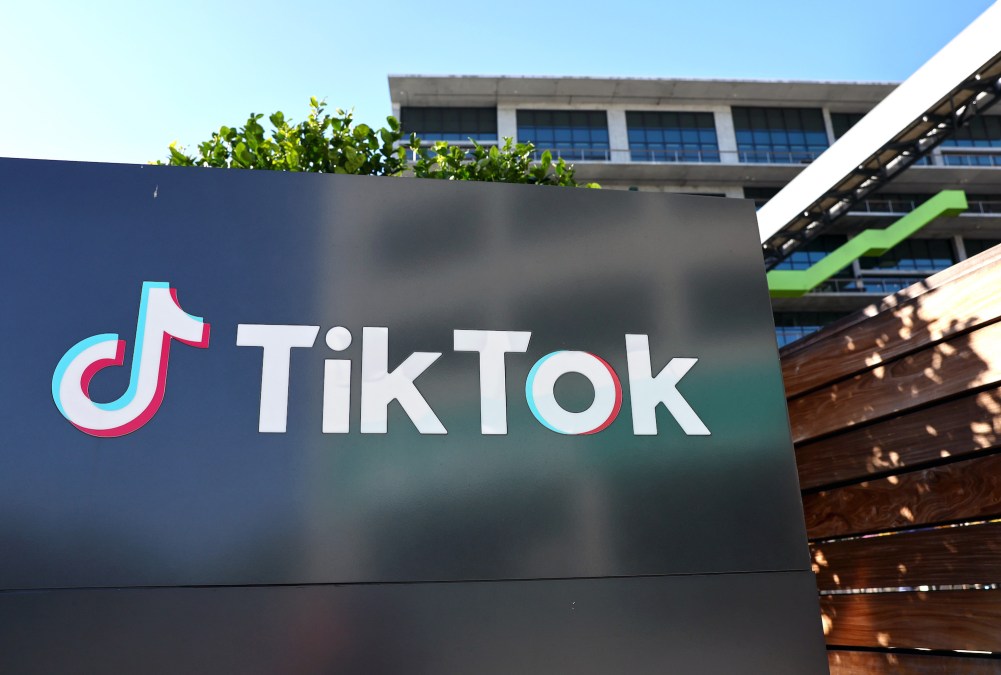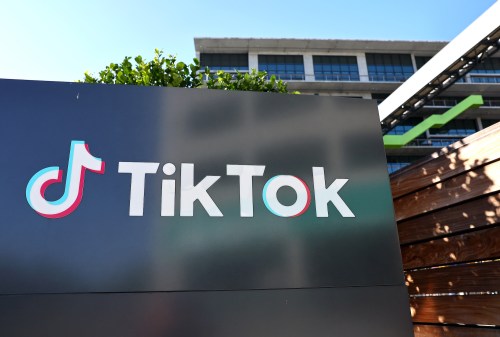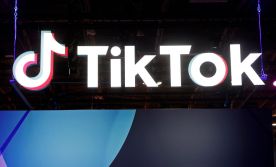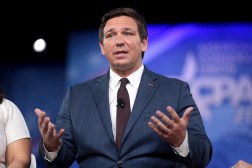Not all state TikTok bans are built equally

Nearly half of U.S. states have in recent weeks have made moves to block the video-sharing platform TikTok from government-owned devices and networks, with governors invoking the proximity of TikTok’s parent company, ByteDance, to China’s ruling Communist Party.
Wisconsin Gov. Tony Evers and Mississippi Gov. Tate Reeves were the latest to sign such executive orders on Thursday, following at least two dozen governors who’ve tried to crack down on TikTok since last Nov. 29, when South Dakota’s Kristi Noem became the first to boot the popular video app.
At first, the TikTok bans came exclusively from other Republican-led states, including Maryland, Texas and Oklahoma. But over the past few weeks, the campaign against TikTok has become a bipartisan one, with Democratic governors like Evers, Laura Kelly of Kansas and Phil Murphy of New Jersey taking actions of their own.
Meanwhile, the $1.7 trillion federal spending package passed last month included a TikTok ban for U.S. government agencies. ByteDance — which says it stores U.S. users’ data at server farms in Singapore and Virginia, rather than mainland China — has also been in a years-long negotiation to sell its U.S. assets to an American company.
But not all TikTok bans are created equally, and limiting the focus to just a single app is shortsighted in the eyes of Brandon Pugh, the director of cybersecurity and emerging threats at the R Street Institute, a free-market think tank in Washington. Rather, Pugh told StateScoop, governors looking to make a more impactful statement should take broader approach and target other Chinese-owned social media companies and device manufacturers, as well as other companies that are hostile toward the United States.
“I don’t think we should be taking such a narrow view on one company,” he said.
‘It’s not just one company’
Maryland’s Dec. 6 order, written by state Chief Information Security Officer Chip Stewart, took that broader view, and included mobile device-makers Huawei and ZTE — which have long faced a federal ban — and online merchants Tencent and Alibaba. Stewart’s directive also included the antivirus software publisher Kaspersky, which has been accused of harboring close ties to the Kremlin.
“It shows concerns with how foreign companies collect and use our data,” Pugh said of the Maryland order. “It’s not just one company that has issues, whether it’s Russia, North Korea or a host of other countries we may view as adversaries.”
A handful of other states have followed Maryland’s lead: An order Ohio Gov. Mike DeWine signed Sunday covers “any social media application, channel, and platform that is owned by an entity located in China,” including WeChat, the Tencent-developed messaging app that has a global user base of more than 1 billion people per month.
The orders Murphy and Evers signed this week include the wider set of Chinese social-media apps, several device makers and Kaspersky. But they remain in the minority of this movement, while many more governors continue to focus solely on TikTok, including Kelly, Reeves and new Arkansas Gov. Sarah Huckabee Sanders, who banned the app Tuesday on her first day in office amid a slew of other culture-war executive orders.
Taking a holistic approach
But even if TikTok bans keep going viral like the latest dance trend, state governments are unlikely to put much of a dent in the video platform’s reach, Pugh said.
“You have neighboring states doing likeminded actions — ‘Our neighboring state has identified this as a problem, maybe we should do it’,” he said. “The flip-side of a state doing it is it’s only going to have so much of an impact. They can’t make national policy decision so they make a small step.”
In Congress, a bipartisan group of lawmakers last month introduced legislation that would fully block TikTok from being used in the United States. Senate Intelligence Chairman Mark Warner, D-Va., told Axios this week that while he wouldn’t support a bill targeting just ByteDance, he’s open to considering legislation that would restrict U.S. access a broader category of Chinese social media.
Pugh told StateScoop that even if there’s political clout to be gained for governors who bash TikTok, states are better off flagging the wider array of technology coming from potentially adversarial nations.
“We should be taking a holistic approach with all of our software, all of our hardware, who’s making it and how we’re using it,” he said. “I am personally concerned about aspects of TikTok. There are things we should figure out. My questions would be what other companies pose a risk? There are a lot of companies that have close ties to countries.”






